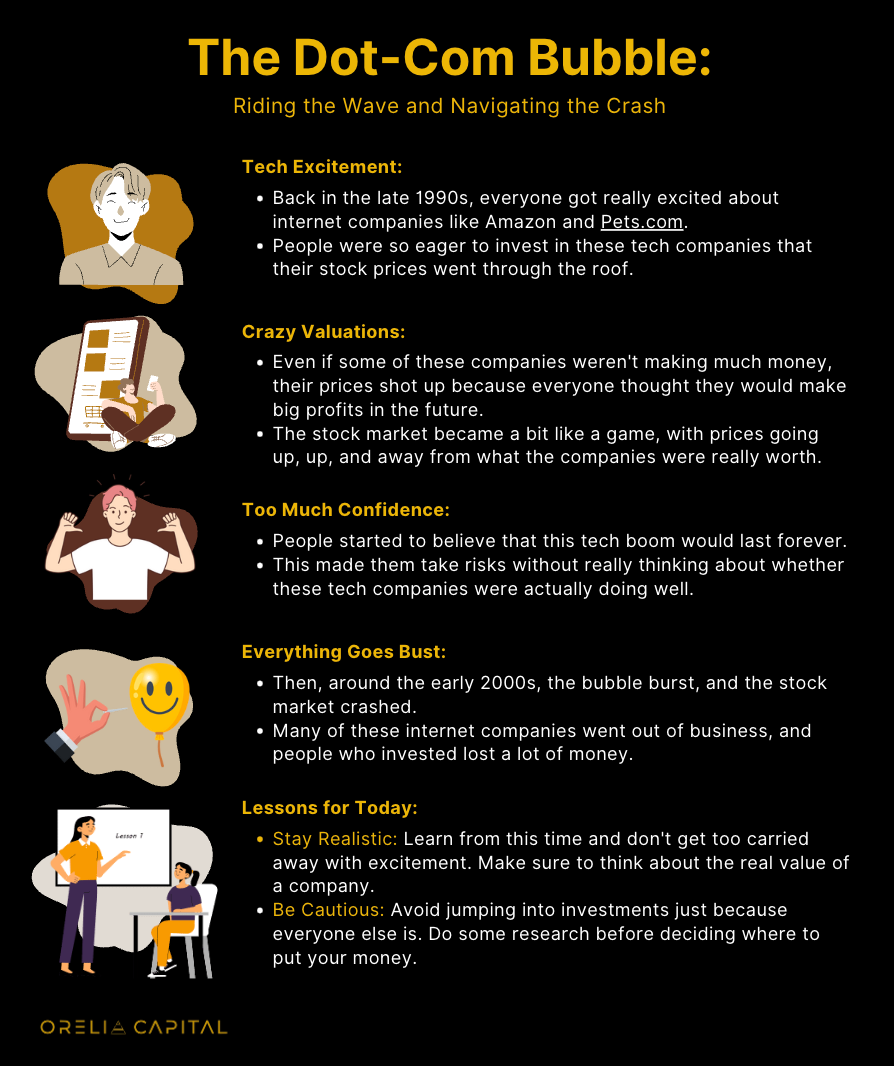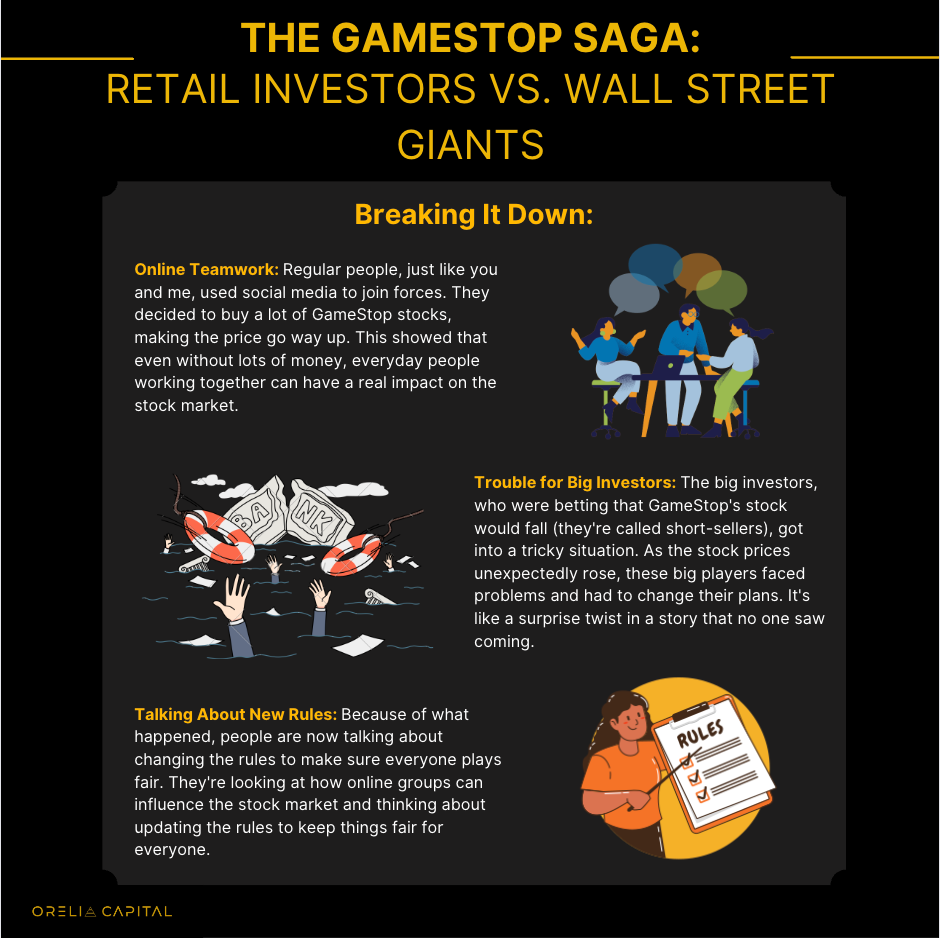Decoding Financial Histories: Navigating Market Bubbles for Smart Money Moves

Introduction
Welcome to this week's edition of our financial newsletter. Today, let's talk about something interesting: market bubbles. It's like exploring the exciting ups and downs of money. Imagine it as learning from stories of the past that can help us make smarter choices with our finances.
Think of market bubbles as cautionary tales – stories showing what happens when people get excited about investing. We will check out a few historical tales to see their lessons for us today.
Picture it as a guidebook for our money adventures. We'll uncover the do's and don'ts, learning from others' experiences to avoid money pitfalls. Market bubbles might sound tricky, but they're like gold mines of wisdom.
So, get ready to unravel these stories, and let's find out how they can guide us to make wise decisions in today's ever-changing world of money. It's going to be an interesting ride!
The Tulip Mania of the 17th Century: Unraveling the First Recorded Market Bubble
- The Tulip Fever: In the 1630s, something unexpected happened in the Dutch markets – tulip bulbs became more precious than gold. People went crazy buying and selling them, driving prices to unimaginable levels.
- Speculation Gone Wild: Imagine buying a single tulip bulb for the price of a grand house! That's what happened. The market wasn't based on the tulips' real value; it was fueled by wild speculation and people hoping to get rich quickly.
- Parallel with Today's Markets: Just like those tulip bulbs, sometimes assets in today's markets can become super popular and overpriced. It's a reminder to be cautious when things seem too good to be true.
- Lesson Learned – Caution in Speculation: The Tulip Mania teaches us the dangers of blindly following the crowd and making decisions based on hype rather than the actual value of an asset. It's a call for careful consideration before jumping into investment trends.

Lessons from the Housing Bubble: 2008 Financial Crisis Revisited
Trouble with Tricky Mortgages:
- In the mid-2000s, banks gave mortgages to people who probably shouldn't have gotten them. These were called "risky mortgages" or "subprime mortgages."
- The banks bundled these risky mortgages together, like a mix of ingredients for a cake, and sold them as fancy-sounding financial products.
Making Things Too Complicated:
- They took these risky mortgages and turned them into "securities." Imagine they turned these mortgages into puzzles that were hard to solve.
- When people who got these mortgages couldn't pay, it was like a puzzle falling apart, and it caused big problems.
Everyone Got Tied Up in the Mess:
- Big banks and money groups all over the world were connected through these mortgage-backed puzzles. So, when one piece fell, it affected everyone.
- This created a huge money crisis that spread everywhere.
What We Should Learn:
Watch Out for Tricky Stuff:
- People and banks need to be super careful about tricky financial products. It's like checking the ingredients before cooking to make sure nothing risky is in there.
- Being careful can stop big financial disasters from happening.
Be Clear and Honest:
- Financial markets work best when everyone knows what's going on. Think of it like playing a game with clear rules so everyone can have fun.
- Rules that make things clear can stop the creation of confusing and risky financial stuff.
Keep an Eye on the Rules:
- The 2008 crisis showed us that there need to be strict rules to keep things in check, like a referee in a game.
- Governments and financial groups play an important role in making and enforcing these rules to stabilise things.
The GameStop Saga: Retail Investors vs. Wall Street Giants
What Happened Recently
Imagine a big showdown in the financial world where regular folks, not the usual rich investors, teamed up online to challenge the big Wall Street players. This surprising clash was about GameStop, a company you might know if you're into video games.

Lessons We Can Learn
The GameStop story isn't just about a video game company; it's a lesson in how regular people can shake things up in the money world. It makes us think about how money works and questions the usual power of big investors, making us wonder about the role of everyday people in deciding how things go in the money world.
Conclusion:
So, that's the end of our talk about market bubbles, friends! Think of it like we just finished exploring some cool stories about money's ups and downs. Now, what's the takeaway?
These stories aren't just warnings; they're like guides showing us how to be smart with our money. It's like having a map that helps us make good choices and avoid money problems.
In our ever-changing money world, these lessons are like secret tips. They tell us which paths to take and which to skip to keep our money safe. Let's keep these tips in mind as we move ahead, making clever choices in our money adventures.

We hope you enjoyed this edition of our newsletter. If you found it helpful, please consider sharing it with others who might benefit from this information.
At Orelia Capital, we believe that feedback is a gift. Your feedback can help us improve our content and provide more value to our readers.





